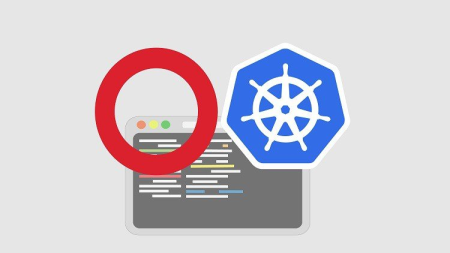
Video: .mp4 (1280x720, 30 fps(r)) | Audio: aac, 48000 Hz, 2ch | Size: 715 MBGenre: eLearning Video | Duration: 30 lectures (2 hour) | Language: English
What you'll learn
Learn the fundamental concepts of Kubernetes and Openshift
Deploy a microservice app using both CLI and YAML
Learn to write Kubernetes and Openshift YAML files
Learn to scale up/down an application
Learn to create cluster using minishift and minikube
Learn about Replica Controller, Replica Sets, Deployment Config, Deployment, Volumes, Config map, Secrets and much more
Learn to do quick update and easy rollback
Learn to use kubectl, oc, minishift and minikube commands
Learn to deploy self healing application
Course content
5 sections 30 lectures 2h 0m total length
Requirements
Minikube installed
Minishift installed
Must have Hyper V capabilities on the system
Have a Github and Redhat account
Understands the basic concepts of containerization technology
Idea of linux commands will be good (Not mandatory)
Must have Virtual box installed
Docker Desktop installed
Description
Containerization technology are becoming popular day by day just because of its microservices architectures have profoundly changed the way of developing and operating a modern software.
It enables IT organizations to become more agile and scalable. Today less than 30 percent of businesses are currently utilizing them, by 2021, more than half will leverage the power of containerization, according to Gartner. This number is likely to spike more than 75 percent by 2022. Due to which it's demand in the market is exponentially grown.
Docker and Kubernetes are the market leader in the world of containerization. Docker, make it easier to create, deploy, and run applications by using containers. And to manage numbers of container, Kubernetes and Openshift like container orchestration tools are used. Kubernetes is little bit complex comparing to Openshift.
What are the benefits of using Openshift over Kubernetes
Openshift has stronger security policies than Kubernetes.
Openshift's web console is easy to access the console, create or change resources through a form and also visualize servers, projects, and cluster roles.
Openshift offers seamless integration with D pipeline building tools like Jenkins.
Easy node configuration in Openshift
Templates, Source to image, Image streams and triggers which makes Openshift more powerful then Kubernetes.
In this learning track you'll learn the similarities and difference between Openshift and Kubernetes then create YAML files to create pods, services, replica controller, replica set, deployment and deployment config. Then, scaling up/down of applications, updating and rolling back of applications and much more.
Lectures backed by practical exercises makes it easy to understand without wasting in doing troubleshooting. This is the only course that provides 90% practical hands on with 10% theory to support the topic.
Who this course is for:
Anyone whether Developer, Operations, or Sysadmin at any skill level.
Bner in containerization world wants to deploy locally deployed apps into production
DOWNLOAD
uploadgig.com
rapidgator.net
nitro.download

